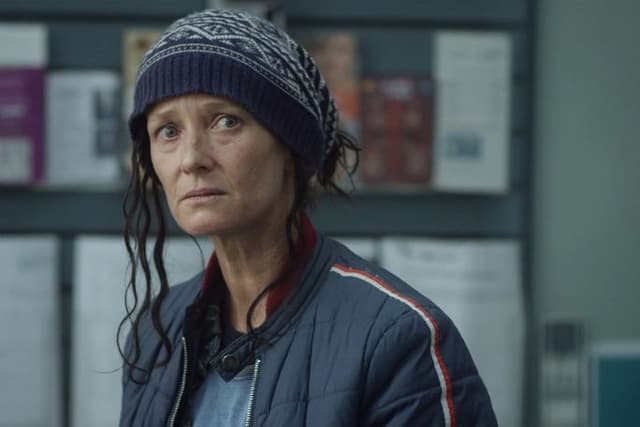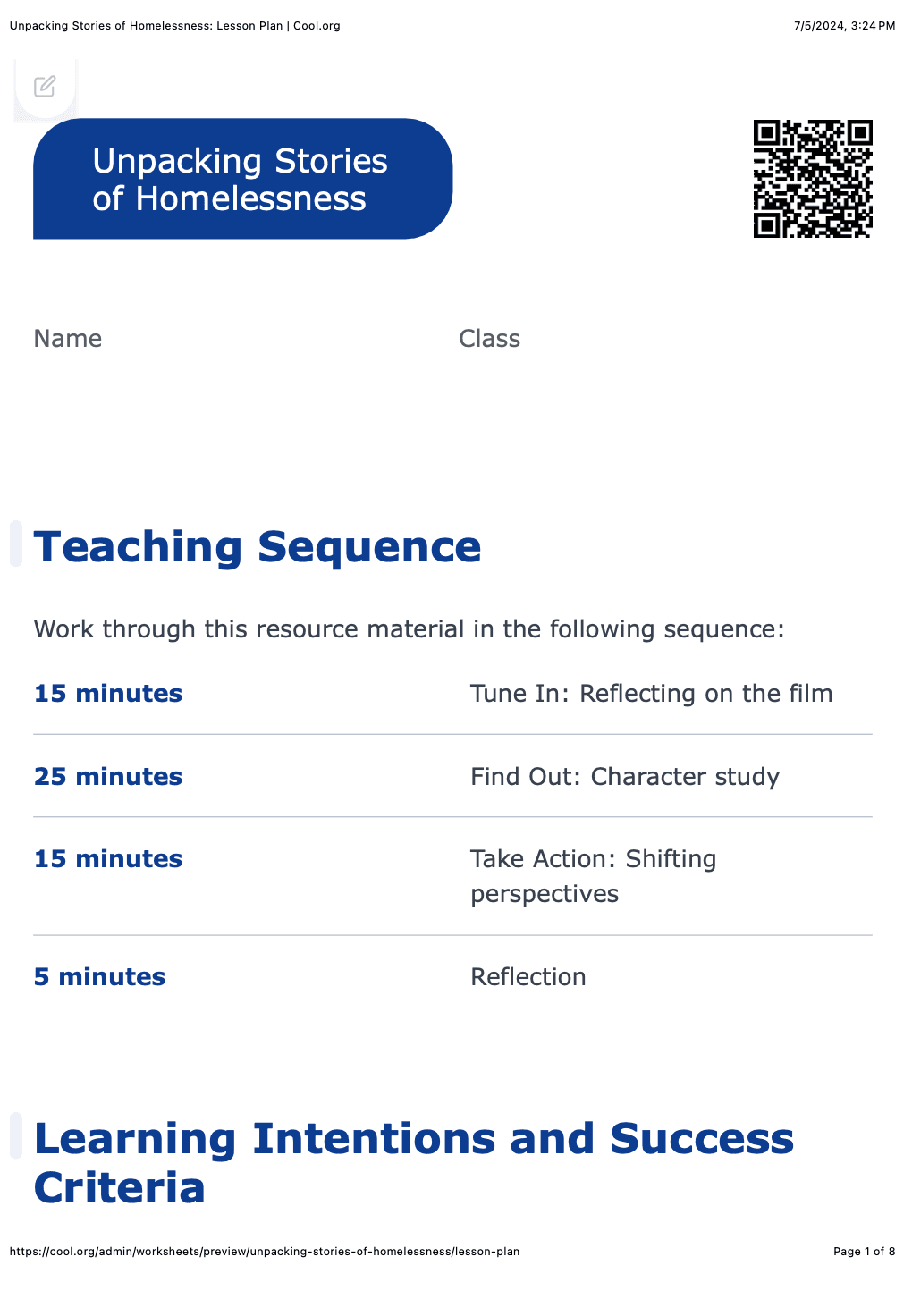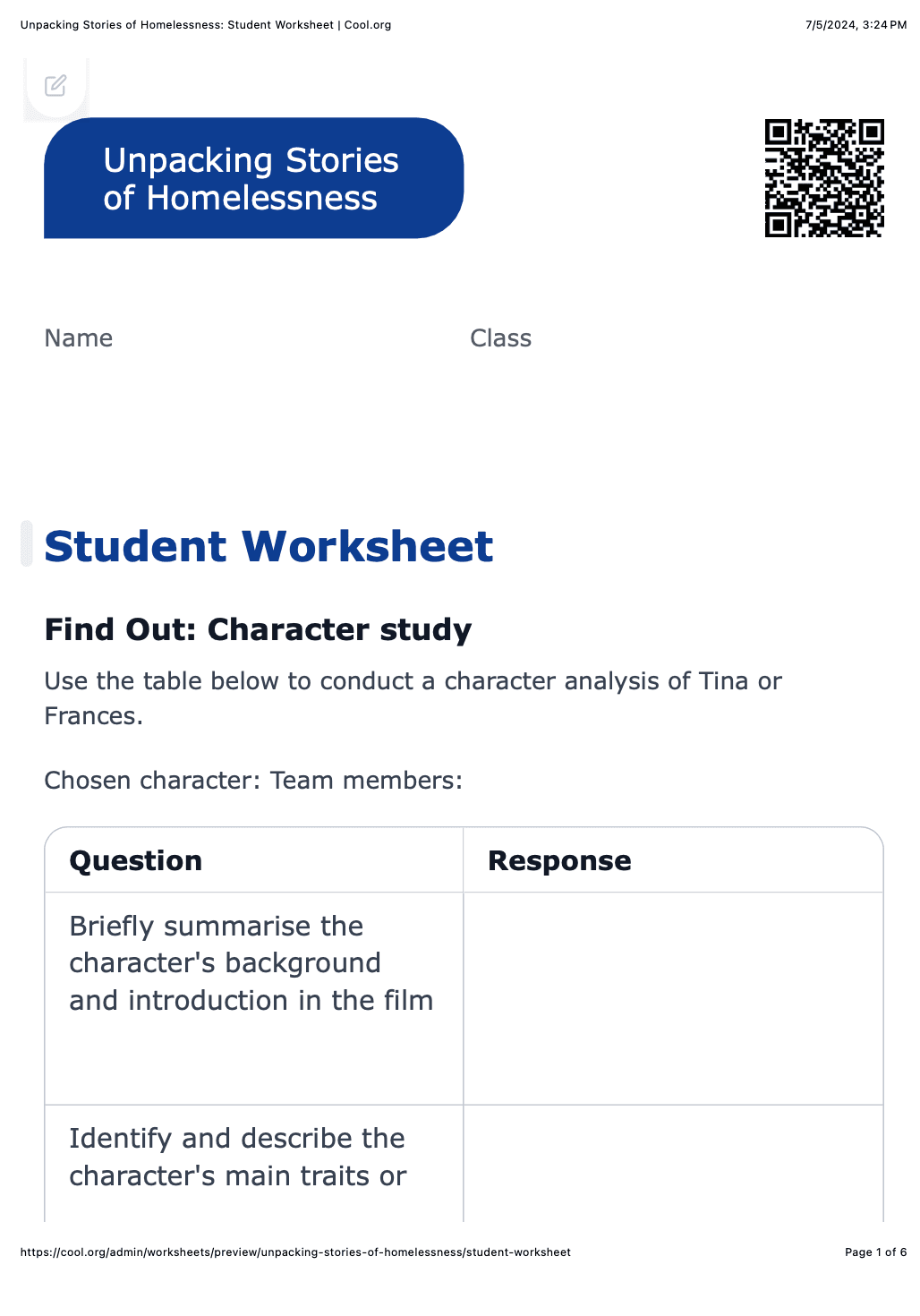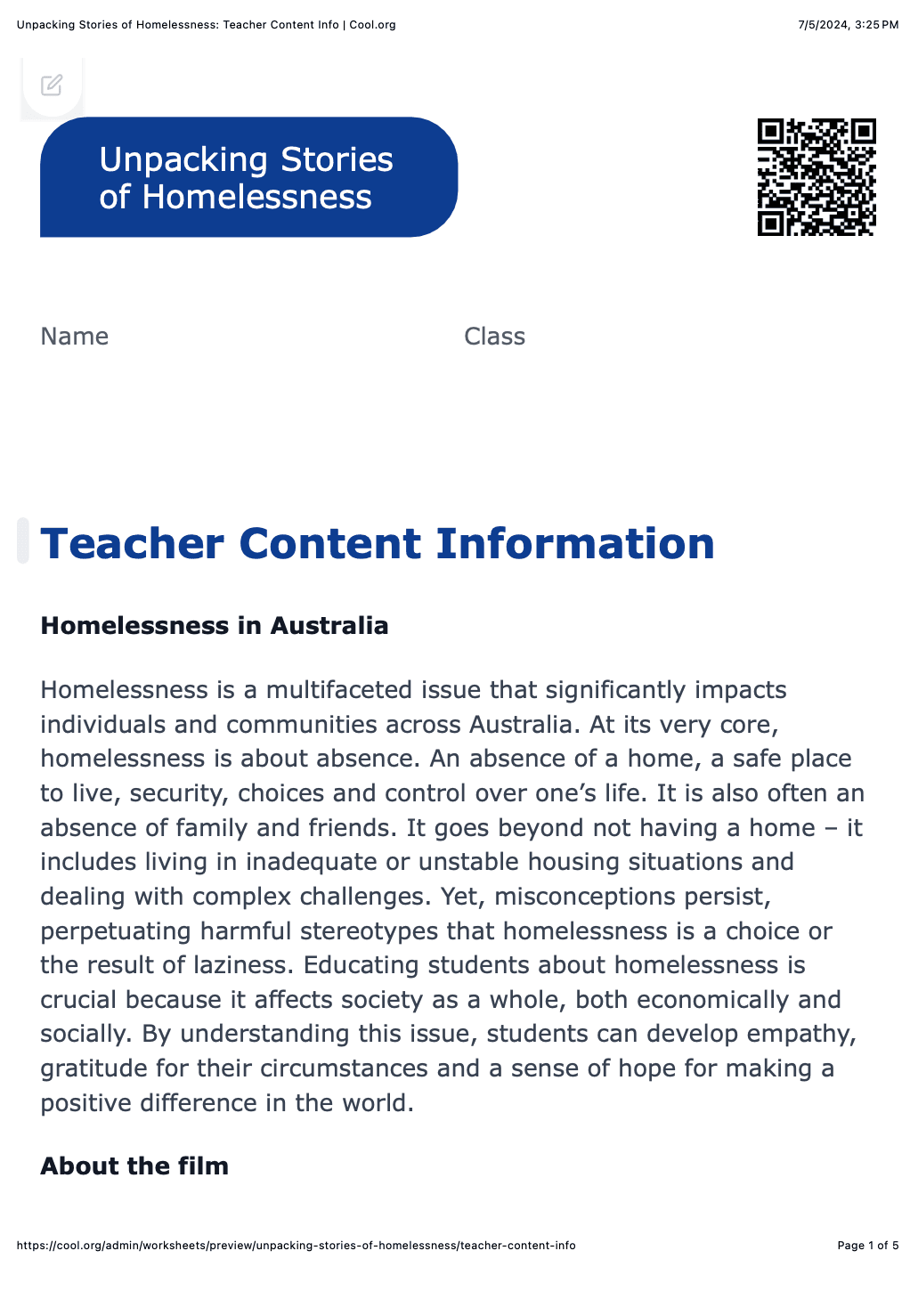Learning intentions:
Students will...
- analyse the characters Tina and Frances to better understand homelessness as a social issue that impacts us all
- explore how the filmmaker has employed characterisation and narrative to challenge pre-existing ideas of homelessness.
Success criteria:
Students can...
- begin to express how their pre-existing ideas respond to new information (E.g. Have their attitudes toward homelessness changed?)
- explain how people experiencing homelessness and local citizens all contribute to this social issue.



